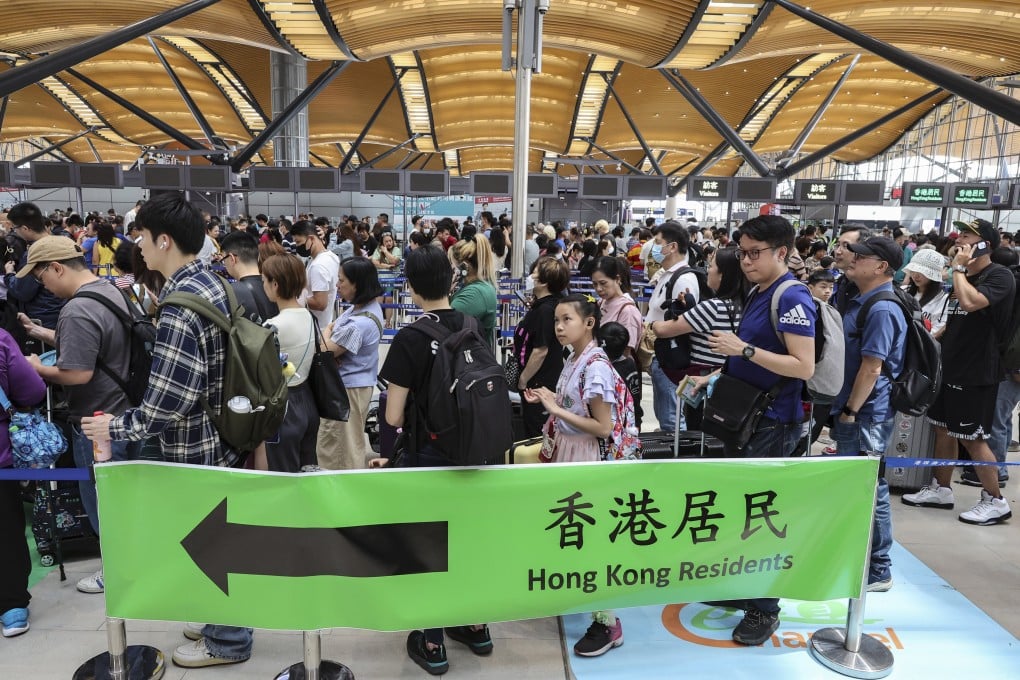Opinion | Hong Kong must turn Greater Bay Area integration challenges into opportunities
- The city’s economic rebound depends, in the short term at least, on encouraging more mainland visitors, and getting them to spend more
- In the longer term, to remedy Hong Kong’s housing and labour shortages, the government should develop a strategy to make use of the mainland’s resources and talent

A framework agreement for deepening cooperation between Guangdong province, Hong Kong and Macau was signed on July 1, 2017. Almost seven years on, development in the bay area plan is bringing about profound changes to Hongkongers’ lifestyle and the economy.
Between March 28 and April 8, which includes the extended Easter weekend and Ching Ming Festival, a staggering 3.6 million Hong Kong residents went north via land control points, compared to about 860,000 mainland residents who visited Hong Kong.
The economic impact of this reversed travel pattern being felt across the Greater Bay Area. Last year, Shenzhen authorities announced that “social consumption and retail spending” rose by 7.8 per cent while its gross domestic product (GDP) grew by 6 per cent, exceeding Hong Kong’s and other first-tier cities on the mainland.
